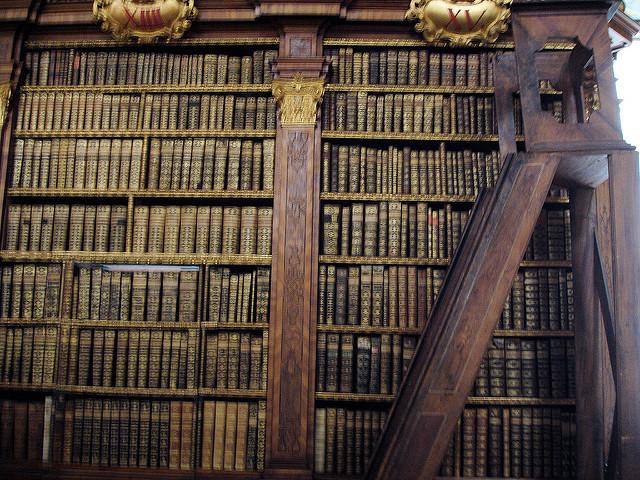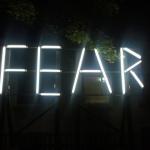Understanding How History Works
We like to live as if our history does not matter. Every morning is a new beginning. Independent and free, we can do whatever we please. Paying attention to the present, we stretch out toward the future. We want to live as though we can leave the past behind.
It would take us too much time and effort to remember and understand the past. We think history is full of people who would not really understand us today. Why do we need to understand them?
What could history possibly have to teach us?
Our focus is on creating something new. We believe in the power of innovation and newness. Our phones have apps for catching up on the news, but not for appreciating history.
We want our lives, and our leadership, to be all about the future. The task before us, in our eyes, is to invent ourselves and the world in which we want to live. We do not want to get stuck in the past, repeating the mistakes of others.
Ironically, we have forgotten that those who fail to learn from history are doomed to repeat it.
We do not know our history, much less remember or understand it. Our perception is the world we know has always existed.
The monks who inspire me recognize their lives are based in a long history of monastic life. They read people who struggled to grow into spiritual life hundreds of years ago. The history they share shows them their questions and challenges are not new.
Monks have important lessons to teach us about valuing the history on which we depend.
History is the Story We Share
Each of us has a history. Part of our history is shared and part is unique to us.
Some of our history is shaped by larger forces. Parts of my own life happened only because I was born when and where I was born.
In addition, my own history has been shaped by decisions I made and actions I took. That is how history works. The story includes all of us, no matter how unlikely. Ordinary people do extraordinary things, and the story grows and continues.
Our story is complex. It includes many actions by many different actors. There are pieces constantly moving. It is a challenge to follow the story, to keep track of where we have been and where we are going. It may be impossible to pay attention to the whole story at any given time. Most of us try to understand the moving, changing story by choosing metaphors.
We choose to see the story in a certain way, with a particular meaning. The way we understand our metaphors shapes how we connect to the story.
We may share a common story, but we argue about which metaphors describe it.
It is easy to seek leaders and friends who share our ways of understanding, our metaphors. All around us we see people fighting to defend the metaphors they have chosen.
We become leaders in organizations and our leadership is defined by how we see our story. Even if we are not willing to understand how we see history, our metaphors shape our leadership.
We may not even be aware of how we experience our history, of the metaphors we choose.
Even unconsciously, the way we understand history shapes our leadership.
How Monastic History Works
While our everyday life tends to reach toward the future, monastic life respects history.
The monks who inspire me draw wisdom and guidance from those who went before them. Monastic communities have a reputation for being repositories of writings from the past. Members working to resolve questions are encouraged to read historic writings. The classics of spirituality were written by people working out their own questions.
It is encouraging to find ourselves struggling with the same questions as ancient examples. The insights of the Desert Mothers and Fathers or John Cassian can help us see today. We benefit from reading their ideas and recommendations. Their words also help us see spiritual life as a community of people asking similar questions.
Monastic history is not about a straight line of people marching toward spiritual truth. Each of us travels at our own pace, exploring and discovering as we go.
We may struggle with the same challenges as someone hundreds of years ago. The insight dawns in us there is no one right path for everyone. We learn from people throughout history how to work through our questions.
It is as if history opens for us as we explore it. We question our assumptions and expectations, and our understanding grows. There are new people to meet along the way and new friendships to build. People we thought were intimidating start to come alive as we listen to their part of the story.
As we meet new people and make new friends we begin to see ourselves as part of the story. Our questions and our insights become part of how monastic history works.
How History Works For Us
The ways we understand monastic history have potential lessons for leaders, as well.
We do not lead in a vacuum. Even the most creative and innovative leaders work in the context of history. There are lessons for us to learn and encouraging guidance for us in our history.
We may meet leaders in history who inspire us today. Reading about their questions and struggles may give us new insights. Spending some time with historic leaders could help us see things from their perspectives. Their thinking may shed light on our own work.
As we begin to understand them we may realize they might understand us as well.
When we appreciate and value our shared story we realize how we have gotten here. The context of history helps us see where we can go next.
How do we understand how history works? What lessons do we learn from history?
What questions would you like to ask someone whose history shaped yours?
[Image by lyng883]
Greg Richardson is a spiritual life mentor and leadership coach in Southern California. He is a recovering attorney and university professor, and a lay Oblate with New Camaldoli Hermitage near Big Sur, California. Greg’s website is StrategicMonk.com, and his email address is [email protected].













